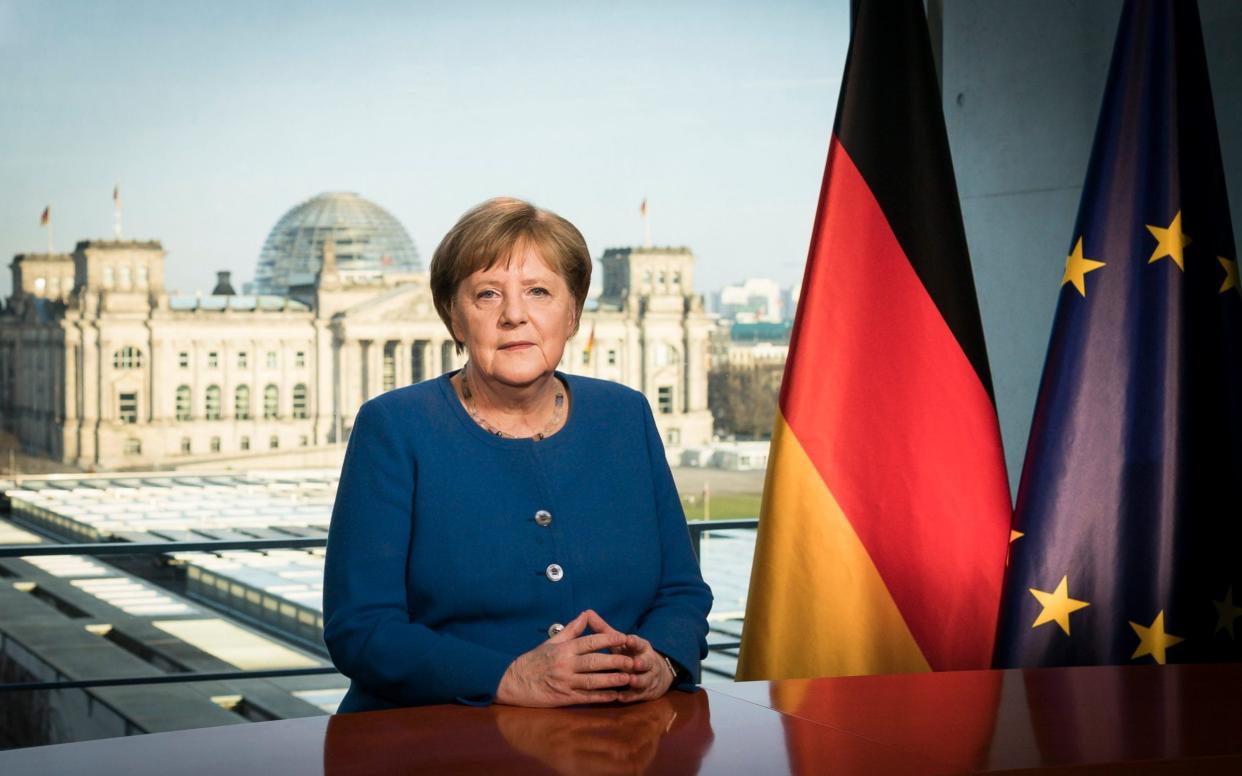Coronavirus is Germany's biggest challenge 'since Second World War' Angela Merkel says

Angela Merkel told Germany it is facing its greatest challenge since the Second World War in the struggle against the coronavirus on Wednesday.
In her first televised address to the nation in more than 14 years in power, Mrs Merkel asked Germans to stand together.
“This is serious. And we must take it seriously,” the German chancellor said. “There has been no such challenge to our country since German reunification – no, not since the Second World War II – that relies so heavily on us all working together in solidarity.”
Eschewing grandiose rhetoric, Mrs Merkel made a heartfelt appeal to Germans to protect the most vulnerable in their society from the virus.
“These are not simply abstract numbers or statistics. It is some one’s father or grandfather, a mother or grandmother, a partner. They are people. And we are a community in which every life and every person matters,” she said.
“This is what an epidemic shows us: how vulnerable we all are, how dependent on the considerate behavior of others.”
Germany has seen just 27 deaths from the virus so far despite recording 10,082 infections — more than anywhere except China, Italy, Iran and Spain.
Dressed in a trademark blue jacket, and sitting in front of a view of the Bundestag, Mrs Merkel told Germans they were is facing a “historial task” that will “change life in our country dramatically”.
“Our idea of normality, of public life, of social interaction — all of this is being tested like never before,” she said.
“Millions of you cannot go to work, your children cannot go to school or daycare, theatres and cinemas and shops are closed, and, perhaps, the hardest of all is that we are deprived of the social life that is usually a matter of course.”
Since becoming chancellor in 2005, Mrs Merkel has steered Germany through the financial crisis, the euro crisis and — more controversially — the migrant crisis of 2015.
But in a sign of how serious the situation is, this was the first time she has ever made a television address to the nation.
“I am addressing you in this unusual way today because I want to tell you what guides me as chancellor and all my colleagues in the government in this situation. That is part of an open democracy,” she said.
The aim of the government-ordered lockdown was to “slow down the spread of the virus, to stretch it over the months and gain time,” she said.
“Germany has an excellent health system, perhaps one of the best in the world... But our hospitals would be completely overwhelmed if too many patients were admitted in a short time suffering from a severe coronavirus infection.”
Invoking her own childhood in communist East Germany, she said: “Let me assure you: for someone like me, for whom freedom of movement and movement were a hard-won right, such restrictions can only be justified in absolute necessity. They should never be taken lightly and only temporarily imposed in a democracy, but they are indispensable now to save lives.”
She pledged that her government would do “whatever it takes” to cushion the economic impact and save jobs.
She promised the food supply was secure and spoke out against panic buying and hoarding.
“It is up to each of us. We are not doomed passively to accept the spread of the virus,” she said. “We have a remedy: we have to keep a distance from each other out of respect.
“We want to be close to one another, especially in times of need... Unfortunately, the opposite is true at the moment. And everyone really has to understand that at the moment only distance is an expression of care.”
It was by far the most dramatic public pronouncement of Mrs Merkel’s long time in office, and won immediate praise from her political contemporaries.
“Mrs Merkel is not fond of big words, unless times are really hard,” said Sigmar Gabriel, who served as her vice-chancellor from 2013 to 2018.
“If some one like her speaks so seriously to the people, then it is really serious.”

